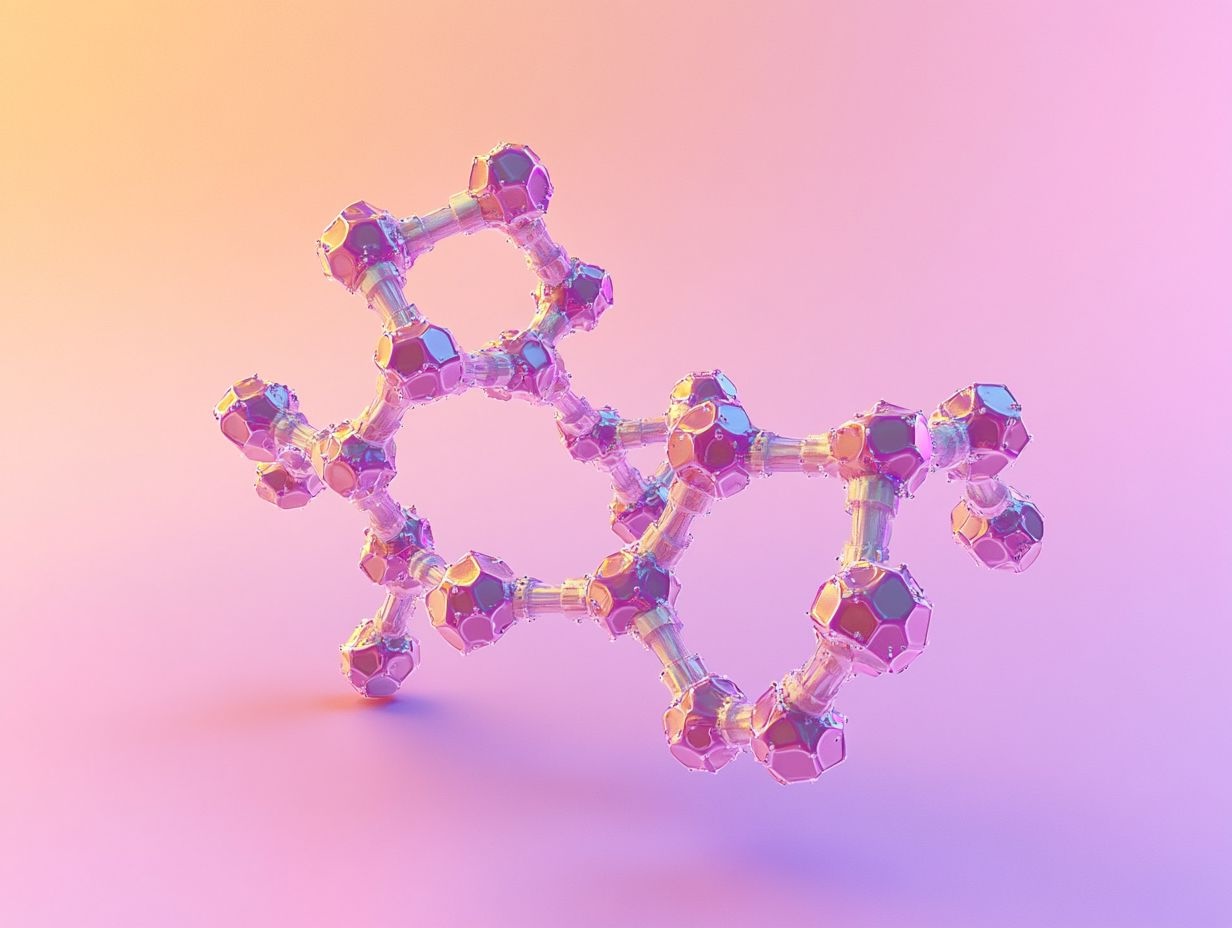
Glycogen is a vital energy reserve in our bodies, but how much do you really know about it? Glycogen is a multi-branched polysaccharide of glucose that serves as a form of energy storage in humans, animals, fungi, and bacteria. Stored primarily in the liver and muscles, it plays a crucial role in maintaining blood sugar levels and fueling physical activity. When your body needs a quick energy boost, glycogen is broken down into glucose and released into the bloodstream. Understanding how glycogen works can help you optimize your diet and exercise routines. Ready to learn more? Here are 31 fascinating facts about glycogen that will boost your knowledge and maybe even your performance!
What is Glycogen?
Glycogen is a vital energy storage molecule in the body. It plays a crucial role in maintaining blood sugar levels and providing energy during physical activities. Here are some fascinating facts about glycogen that highlight its importance and functions.
-
Glycogen is a polysaccharide, meaning it's made up of many glucose molecules linked together.
-
The liver and muscles are the primary storage sites for glycogen in the body.
-
The liver can store up to 100 grams of glycogen, while muscles can store about 400 grams.
-
Glycogen in the liver helps maintain blood sugar levels between meals.
-
Muscle glycogen provides energy during physical activities, especially high-intensity exercises.
How Glycogen is Formed and Broken Down
The process of glycogen formation and breakdown is essential for energy regulation. Understanding these processes can help grasp how the body manages its energy needs.
-
Glycogen is formed through a process called glycogenesis, which occurs when glucose levels are high.
-
Glycogenesis is stimulated by the hormone insulin, which is released after eating.
-
Glycogen breakdown, known as glycogenolysis, occurs when the body needs energy.
-
Glycogenolysis is triggered by the hormones glucagon and adrenaline.
-
During glycogenolysis, glycogen is broken down into glucose-1-phosphate, which is then converted to glucose-6-phosphate.
The Role of Glycogen in Exercise
Glycogen is crucial for athletes and anyone engaging in physical activities. It provides the necessary energy to sustain performance and endurance.
-
Glycogen stores are depleted during prolonged or intense exercise.
-
Carbohydrate loading before an event can increase glycogen stores, enhancing performance.
-
After exercise, consuming carbohydrates helps replenish glycogen stores.
-
Low glycogen levels can lead to fatigue and decreased performance.
-
Endurance athletes often monitor their glycogen levels to optimize training and recovery.
Glycogen and Diet
Diet plays a significant role in glycogen storage and utilization. The type and timing of food intake can impact glycogen levels.
-
Carbohydrates are the primary source of glucose for glycogen synthesis.
-
Simple carbohydrates are quickly converted to glucose, rapidly replenishing glycogen stores.
-
Complex carbohydrates provide a slower, more sustained release of glucose.
-
A balanced diet with adequate carbohydrates is essential for maintaining optimal glycogen levels.
-
Low-carb diets can deplete glycogen stores, affecting energy levels and performance.
Glycogen Storage Diseases
Some medical conditions affect glycogen storage and metabolism. These diseases can lead to various health issues and require specific management strategies.
-
Glycogen storage diseases (GSDs) are a group of inherited disorders affecting glycogen metabolism.
-
There are at least 12 different types of GSDs, each caused by a specific enzyme deficiency.
-
Symptoms of GSDs can include muscle weakness, low blood sugar, and enlarged liver.
-
Treatment for GSDs often involves dietary modifications and enzyme replacement therapy.
-
Early diagnosis and management are crucial for preventing complications associated with GSDs.
Interesting Facts About Glycogen
Glycogen has some unique characteristics and functions that make it a fascinating molecule to study.
-
Glycogen has a highly branched structure, allowing for rapid release of glucose when needed.
-
The body can store enough glycogen to provide energy for about 24 hours of fasting.
-
Glycogen is not found in significant amounts in plants, as they store energy in the form of starch.
-
The brain relies on glucose from glycogen during periods of fasting or intense mental activity.
-
Glycogen levels can be measured through muscle biopsies or non-invasive imaging techniques.
-
Research on glycogen metabolism continues to uncover new insights into its role in health and disease.
The Final Word on Glycogen
Glycogen is a powerhouse for energy storage in our bodies. It plays a crucial role in maintaining blood sugar levels, fueling muscles during exercise, and supporting brain function. Understanding glycogen helps us appreciate how our bodies manage energy, especially during physical activities.
Eating a balanced diet rich in carbohydrates ensures glycogen stores remain topped up, ready for action. Regular exercise also influences how efficiently our bodies use and store glycogen.
Knowing these facts can help you make informed choices about diet and exercise, leading to better overall health. So, next time you hit the gym or enjoy a meal, remember the vital role glycogen plays in keeping you energized and healthy.
Stay curious, stay active, and keep fueling your body right!
Was this page helpful?
Our commitment to delivering trustworthy and engaging content is at the heart of what we do. Each fact on our site is contributed by real users like you, bringing a wealth of diverse insights and information. To ensure the highest standards of accuracy and reliability, our dedicated editors meticulously review each submission. This process guarantees that the facts we share are not only fascinating but also credible. Trust in our commitment to quality and authenticity as you explore and learn with us.
